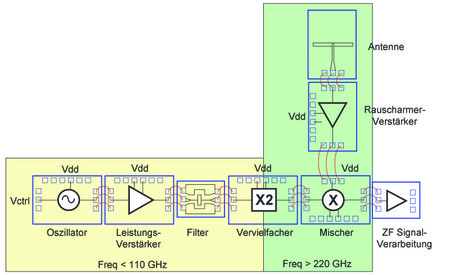For energy harvesting systems (EHS) are structures that collect energy from the environment and convert it into electricity. This technology represents an important alternative to battery operation in different applications. Current applications use linear EHS resulting in an inherent limitation of the power generated with it. In contrast, nonlinear EHS, which can be represented as a modulated bistable oscillators with noise excitation, allow to overcome this limitation, while increasing the efficiency.
Nonlinear EHS are able to convert non-harmonic deterministic and stochastic wideband signal energy and are therefore called (SR-EHS) Stochastic resonance energy converter. SR-EHS were presented conceptually, but lacks of theoretical and numerical analysis have prevented a use in real applications today. Aim of the project is a generalized theoretical method for the analysis of bi- and multi-stable coupled oscillators with stochastic excitation (macro developing model), which is experimentally verified. This method will serve as a basis for the development and analysis of any SR-EHS. As part of the project miniaturized SR-EHS are developed and implemented in MEMS technology, which are coupled with SR-EHS concepts.
The SR-EHS numerical analysis method enables the implementation of macro-models in real applications by taking account of different parasitic effects and noise processes. By using this numerical analysis method SR-EHS can be optimized, while making sure that the dynamic effects in SR-EHS and EHS-coupled SR are better understood.
Project Funding:
|
 |



